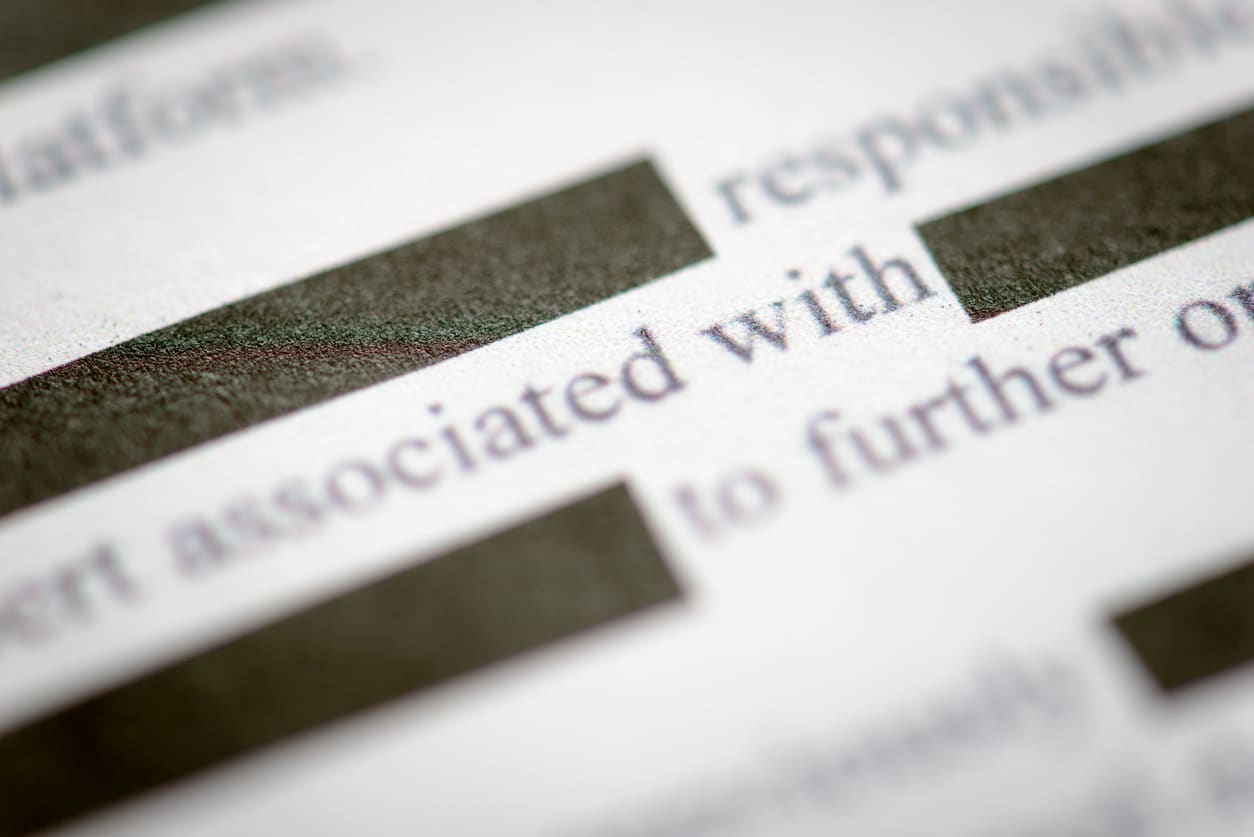Enough with the Censorship?
Attempts by the Prime Minister to influence the Chief Censor may indicate a concerning erosion of the Military Censor’s independence and professionalism. Clearly, state secrets must be protected, especially during war, but there are better ways for this to be accomplished, more suited to a democratic state.

According to media reports in recent days, the Prime Minister’s Office has been putting pressure on the Chief Censor (the head of the Israeli Military Censor, which is tasked with preventing publication of information that may harm national security). It has been pressuring the chief censor to prevent the publication of certain news items, which the Censor did not think were worthy of censorship, some of which relate to the prime minister’s own private affairs. In addition, journalists from various media outlets have reported being subject to discriminatory treatment by the Military Censor, in that reports from certain media outlets are censored, while the same reports from other media outlets are approved.
The Israeli Military Censor is a strange and unusual creature in the democratic landscape. It is an anti-democratic legacy of the British Mandate era, and one which has remained in place thanks to the continual state of emergency that has reigned since the establishment of the state. The question is, why have the media outlets agreed, and continue to agree, to abide by censorship restrictions? There are three explanations: the professionalism of the censor’s work; the censor’s professional independence; and an agreed softening of its legal powers of punishment.
First, the High Court of Justice ruled in 1989 that the Military Censor is entitled to disallow publications only if it is close to certain that they will substantially harm state security. That is, the only publications to be banned are those with a very high potential to do harm, and only to national security—not to the reputation of the defense establishment or of politicians.
Second, in 1966, the then IDF Military Advocate General, Meir Shamgar, stipulated that the chief censor must apply his or her own judgement, and must not act in accordance with the dictates of external actors. Over the years, chief censors have managed to maintain their independence, which has contributed to the relative quiet on the part of the media. The politicians have also recognized the limits of their ability to influence censorship.
The third explanation is the softening of the Military Censor’s powers of punishment under the terms of the “Editors’ Committee Agreement,” according to which media outlets can appeal decisions by the Censor to a committee comprising three professional members, in a speedy and confidential procedure. The carrot offered as part of this arrangement is that that in return for media cooperation with the Censor, the Censor will relinquish its powers to launch criminal proceedings or punish journalists who have committed censorship offenses.
For years there have been calls in Israel to disband the Military Censor, and these have grown stronger as censorship has proved less and less effective against leaks to foreign media outlets, and of course in a media landscape that has been changed unrecognizably by the digital revolution. Today, the foundations that allowed us to fool ourselves into thinking that we could get by with leaving the Military Censor in place are crumbling. There have certainly been times in the past when elements in the government have exerted pressure on the Censor, but the signs now are particularly worrying. The attempts by the prime minister to influence the activities of the Chief Censor, and the claims by journalists of discriminatory censorship practices, may indicate a concerning erosion of the Military Censor’s independence and professionalism.
Clearly, state secrets must be protected, especially during war. But there are better ways for this to be accomplished, more suited to a democratic state—first and foremost, by improving information security to prevent information from being leaked to begin with, and changing Israel’s political culture regarding leaks from within sensitive forums. Second, there should be greater emphasis on criminal punishments for offenses involving the exposure and publication of state secrets, with such offenses ranked on a scale of seriousness. The Military Censor could then become an advisory body, which can be consulted before information is made public so as to prevent accusations of criminality subsequently being leveled at the publisher. Third, legislation should be introduced governing the use of a gag order—that is, orders that require court approval for suppression of publications—including on issues relating to security, instead of the current arrangement of censorship under the responsibility of a military official.
If the Military Censor is unable to maintain its professional independence, then it loses any democratic legitimacy that it might somehow have still retained. It will simply reinforce the conclusion that we and many others reached a while ago: The powers of the Military Censor should be revoked, and it should be made into a solely advisory body.
